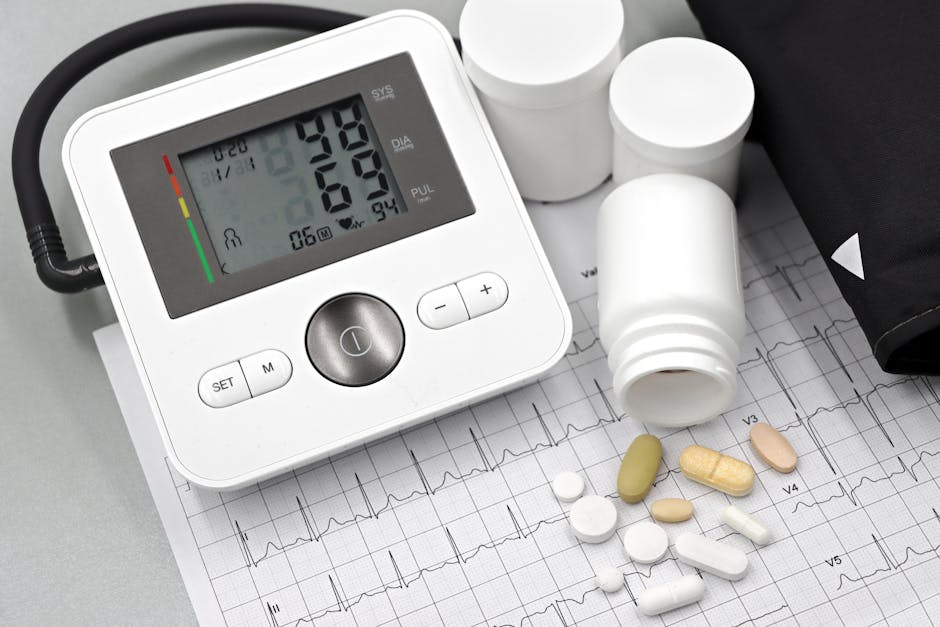Quick Changes for Cholesterol Control
Cholesterol is a buzzword that comes up often in health discussions. Did you know that about 38% of American adults have high cholesterol? This can lead to heart disease and other serious health issues. But the good news is that you can make simple changes to manage your cholesterol effectively. Lets dive into some quick and easy ways to get started!
What is Cholesterol, and Why Does it Matter?

Cholesterol is a waxy substance found in your blood. Your body needs some cholesterol to build healthy cells. However, too much cholesterol can lead to blockages in your arteries, increasing your risk of heart disease. There are two types of cholesterol: LDL (bad) and HDL (good).
LDL cholesterol can build up in the walls of your arteries, while HDL cholesterol helps carry cholesterol away from your arteries. Keeping your LDL levels low and your HDL levels high is essential for heart health. So, how can you manage these levels?
How Can Diet Help Control Cholesterol?

Your diet plays a significant role in cholesterol management. Here are some quick changes you can make:
- Choose Healthy Fats: Replace saturated fats with healthier unsaturated fats. Use olive oil instead of butter.
- Increase Fiber Intake: Foods rich in soluble fiber, like oats, beans, and fruits, can help lower cholesterol.
- Eat More Fish: Fish like salmon and mackerel are high in omega-3 fatty acids, which can boost heart health.
- Limit Sugary Foods: Cut back on sweets and sugary drinks. They can raise cholesterol levels.
Consider adding more fruits and vegetables to your meals. They are packed with nutrients and can help reduce cholesterol. For example, adding a banana or an apple to your breakfast can be a great way to start your day.
What About Exercise?

Exercise is another powerful tool for controlling cholesterol. It doesnt have to be intense; even moderate activity can make a difference.
Here are some easy ways to get moving:
- Walk Daily: Aim for 30 minutes a day. Walking is simple and effective.
- Try Dancing: Put on your favorite music and dance around your living room!
- Join a Class: Whether it’s yoga, spinning, or Zumba, find something you enjoy.
Studies show that regular physical activity can increase HDL cholesterol and lower LDL cholesterol. Plus, it’s a great way to boost your mood!
How Can You Reduce Stress?

Stress can negatively impact your cholesterol levels. When you’re stressed, your body releases hormones that can raise your cholesterol levels. Finding ways to manage stress is crucial.
Here are some stress-reducing strategies:
- Meditation: Spend a few minutes each day in quiet reflection or guided meditation.
- Deep Breathing: Try deep breathing exercises to calm your mind and body.
- Connect with Others: Spend time with friends or family. Social connections can ease stress.
When stress levels are lower, your body functions better, helping to keep cholesterol in check.
What Role Does Sleep Play?
Sleep is essential for overall health, including cholesterol management. Lack of sleep can raise your cholesterol levels and increase the risk of heart disease.
To improve your sleep quality:
- Stick to a Schedule: Go to bed and wake up at the same time every day.
- Create a Relaxing Environment: Make your bedroom dark, quiet, and cool.
- Avoid Screens Before Bed: Try to limit screen time an hour before sleep.
Quality sleep can help lower LDL levels and improve your overall health.
What Are Some Quick Tips for Cholesterol Control?
Here are some quick tips that you can easily incorporate into your daily routine:
- Read Labels: Check food labels for cholesterol and saturated fat content.
- Prepare Meals at Home: Cooking at home allows you to control ingredients.
- Limit Alcohol: If you drink, do so in moderation.
- Stay Hydrated: Drink plenty of water throughout the day.
By following these simple tips, you can make a significant impact on your cholesterol levels.
When Should You See a Doctor?
While lifestyle changes can make a big difference, regular check-ups are essential. How often should you see your doctor about cholesterol?
Most adults should have their cholesterol checked every 4-6 years. If you have a family history of high cholesterol or heart disease, you may need to check more often.
Your doctor can provide tailored advice and, if necessary, recommend medications to help manage your cholesterol. don’t hesitate to discuss any concerns you may have.
Common Myths About Cholesterol
There are many misconceptions about cholesterol. Lets clear up a few:
- Myth: All cholesterol is bad. Fact: Your body needs HDL cholesterol to function properly.
- Myth: You must eliminate all fats. Fact: Healthy fats are essential for your diet.
- Myth: Only overweight people have high cholesterol. Fact: High cholesterol can affect anyone, regardless of weight.
Understanding these myths can help you make informed choices about your health.
Conclusion: Take Action Today!
Managing cholesterol doesnt have to be complicated. By making small, consistent changes to your diet, exercise habits, and lifestyle, you can take control of your cholesterol levels.
Remember, every little bit helps. Start by making one change today. Whether it’s swapping out butter for olive oil or taking a daily walk, you’re on the right path to better heart health.
For more information on heart health, visit the American Heart Association. And don’t forget to consult your doctor for personalized advice!
Keep it simple, stay proactive, and take charge of your health!



